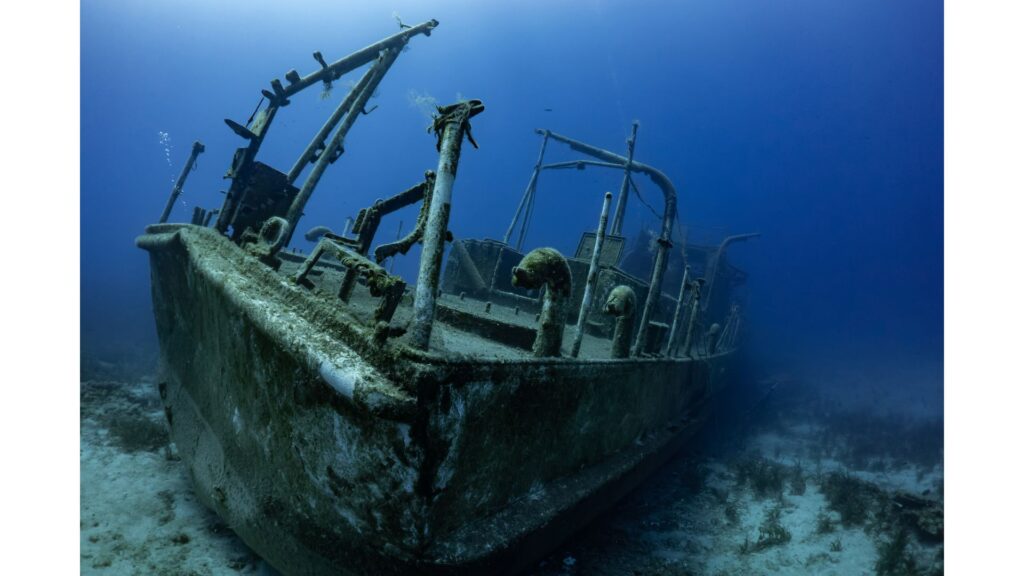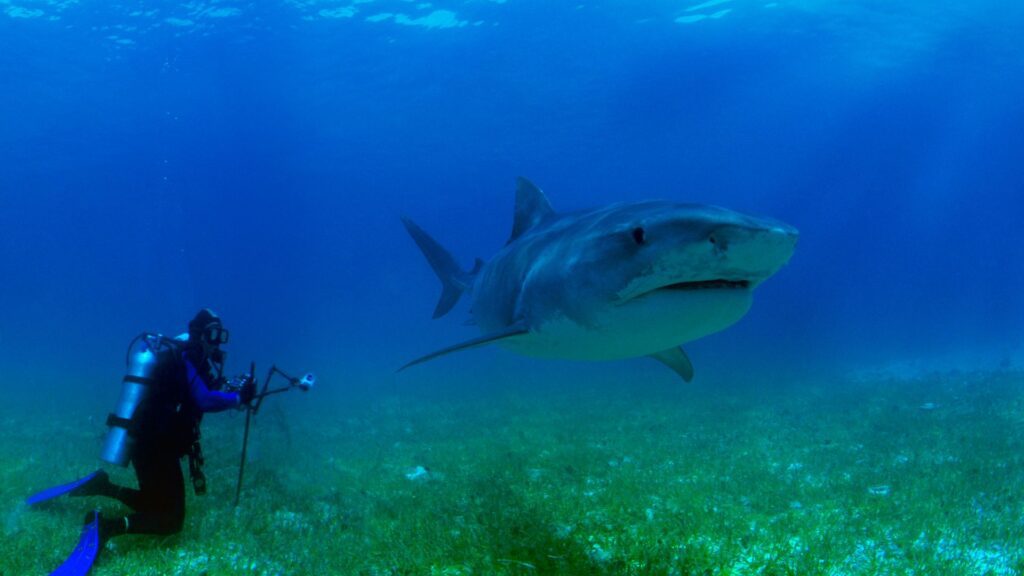Dive Into North Carolina’s Spectacular Underwater World
North Carolina is a premier East Coast scuba destination, boasting warm waters, natural reefs, and shipwrecks galore. Its diverse marine habitats and unique dive sites satisfy adventurers of all levels. Read on to discover what makes North Carolina’s scuba scene stand out and how to plan your own underwater explorations of its coastline.
What Makes Scuba Diving in North Carolina so special?
Several key factors make North Carolina primed for world-class scuba activities:
– Gulf Stream Waters – The warm Gulf Stream current keeps water temperatures comfortable year-round in the 60s and 70s Fahrenheit.
– Shipwrecks – With over 50 diveable shipwrecks, North Carolina’s Outer Banks and Crystal Coast house artificial reefs that divers covet.
– Natural Reefs – Lush natural reefs formed from limestone outcroppings, shale rock walls, and coral are plentiful.
– Diverse Ecosystems – Estuaries, marshes, canyons, and the continental shelf provide habitats for diverse marine life.
– Clear Visibility – Calm conditions often provide 60-100 foot visibility, allowing outstanding underwater viewing.
-Shore Access – Many renowned sites are accessible from beaches rather than requiring a boat.
This combination makes North Carolina a world-class scuba playground. From ancient geological formations to recent ship sinkings, the variety of dive experiences is endless.

The Best Spots for Scuba Diving in North Carolina
The section of the Atlantic Ocean that hugs the North Carolina Coast has forever been nicknamed “The Graveyard of the Atlantic,” making it a fascinating place for shipwreck divers! We have listed a few of the more popular dive sites for shipwrecks, but there are many more!
USS Indra (ARL-37) – Morehead City
Starting our list is the USS Indra, a World War II-era shipwreck resting peacefully on the sandy seabed at approximately 60 feet (18 meters) deep. The Indra offers an exciting glimpse into the history and an opportunity to encounter sand tiger sharks, schools of colorful fish, and breathtaking marine life.
The U-352 – Morehead City
Another historical gem, the U-352, is a German U-boat sunk during World War II. At around 100 feet (30 meters) deep, this site presents a thrilling underwater adventure, teeming with marine life and featuring the haunting silhouette of the sunken sub.
The Aeolus – Outer Banks
In the Outer Banks, divers can explore the Aeolus, a massive shipwreck that sank in the 1980s. With depths ranging from 60 to 100 feet (18 to 30 meters), this site is known for its impressive array of marine species and fascinating coral growth.
The Papoose – Outer Banks
Another treasure in the Outer Banks, the Papoose, is a World War II oil tanker resting in waters around 90 feet (27 meters) deep. Divers can navigate the ship’s structure, encountering sea turtles, sharks, and countless fish species.
The Graveyard of the Atlantic
These dive sites, appropriately named the “Graveyard of the Atlantic,” encompass numerous shipwrecks scattered across the ocean floor. These wrecks date back to the 16th century, making it a haven for maritime history buffs and underwater photographers.
The USS Monitor – Cape Hatteras
A significant piece of Civil War history, the USS Monitor was an ironclad warship that sank in 1862. Divers can explore its wreckage at approximately 240 feet (73 meters), where they’ll find a well-preserved piece of American naval heritage.
The Caribsea – Wrightsville Beach
The Caribsea, a former luxury yacht, now serves as an artificial reef teeming with marine life. With depths ranging from 60 to 110 feet (18 to 33 meters), this site offers divers the chance to observe colorful sponges, schools of fish, and the occasional sand tiger shark.
The Aegean – Morehead City
The Aegean, a cargo ship about 100 feet (30 meters) deep, is known for its stunning marine life and the chance to encounter sand tiger sharks and large schools of Atlantic spadefish.
The Hyde – Morehead City
Another remarkable shipwreck, the Hyde, allows divers to explore a 200-foot (61-meter) long vessel lying in waters around 100 feet (30 meters) deep. The wreck is covered in colorful coral growth and offers shelter to various marine species.
The Naeco – Morehead City
Our final destination, the Naeco, is a cargo ship that offers divers a surreal underwater experience. Lying at a depth of 90 to 110 feet (27 to 33 meters), this site features abundant marine life and an opportunity to explore the ship’s intriguing structure.
Different Types of Scuba Diving in North Carolina

North Carolina’s coast offers diverse scuba diving experiences, each catering to different interests and skill levels. Here’s a detailed list of types of scuba diving available off the coast of North Carolina and why this region is an excellent choice for each:
Wreck Diving
The North Carolina coast is often called the “Graveyard of the Atlantic” due to its numerous shipwrecks. These wrecks, ranging from World War II-era vessels to Civil War-era ships, provide a unique opportunity for wreck diving enthusiasts to explore history beneath the waves. The warm Gulf Stream current helps preserve wrecks and supports vibrant marine life.
Shark Diving
The waters off North Carolina’s coast are home to various shark species, including sand tiger and bull sharks. Divers come here to witness these magnificent creatures up close. The shipwrecks and artificial reefs serve as natural congregation points for sharks, making it an ideal spot for shark diving.
Drift Diving
The Gulf Stream, a warm ocean current, flows close to the North Carolina coast, creating ideal conditions for drift diving. Drift dives allow divers to glide effortlessly along the underwater landscape while encountering diverse marine life, including large pelagic species like tuna and mahi-mahi.
Deep Diving
North Carolina offers a unique opportunity for deep diving enthusiasts to explore sites like the USS Monitor, which lies at depths of around 240 feet (73 meters). The region’s clear water and preserved wrecks make it a top destination for those exploring greater depths.
Technical Diving
With deep wrecks and challenging conditions, North Carolina is a hub for technical diving. Divers can undergo specialized training to explore deep wrecks, caves, and challenging underwater environments, making it a playground for advanced divers seeking technical challenges.
Night Diving
Night diving off the North Carolina coast is an exhilarating experience. The darkness reveals an entirely different underwater world, with bioluminescent organisms, nocturnal marine creatures, and the eerie beauty of illuminated shipwrecks.
Marine Biology and Photography Diving
The diverse marine life and underwater topography off the North Carolina coast provide excellent marine biology research and aquatic photography opportunities. Divers can capture the beauty of coral reefs, colorful fish, and the unique creatures that inhabit the region’s waters.
Spearfishing
The coastal waters of North Carolina offer abundant fish species, making it a popular destination for spearfishing. Divers can target species like grouper, snapper, and sheepshead while exploring the underwater landscape.
Treasure Hunting
The historical significance of the region’s shipwrecks has attracted treasure hunters searching for artifacts and valuable cargo lost to the sea. For those interested in maritime history and treasure hunting, North Carolina’s waters hold great potential.
North Carolina’s coastline provides various scuba diving experiences, ranging from wreck and shark diving to technical and night diving. The region’s unique combination of preserved shipwrecks, diverse marine life, and underwater geography makes it a versatile and exciting destination for divers of all interests and skill levels.
Scuba Clubs and Charters
Joining local dive clubs and chartering boat trips are great ways to access North Carolina’s fantastic sites, gain experience, and meet fellow diving enthusiasts:
- Discovery Diving Company has offered charters, equipment, and lessons out of Beaufort since 1977.
- Olympus Dive Center has provided charters, classes, and rentals in Morehead City for over 50 years.
Getting Certified for Scuba Diving in North Carolina
Before strapping on any gear, divers must get certified. Taking a beginner open water scuba course teaches you dive planning, gear use, safety, entry and exit, buoyancy control, and troubleshooting skills.
PADI is the most recognized and versatile certification body, with open water courses generally running $250-400. This gives you an international license to dive to 60 feet, supervise others, and rent gear.
More advanced certifications like rescue divers build additional skills and allow diving to 100 feet. Technical training expands your depths and capabilities even further.
Scuba Gear Essentials
While charters provide equipment, eventually, you’ll want to assemble the critical personal gear:
- Mask and fins – Let you view and propel comfortably underwater.
- Snorkel – Handy in case you need to surface while swimming.
- Wetsuit – Insulation for North Carolina’s cooler water temperatures.
- Buoyancy control device (BCD) – Also known as a life vest, adjusts your float.
- Regulator – Delivers air from your tank and lets you breathe underwater.
- Tank and gauges – Holds compressed air you breathe from.
- Dive computer – Monitors depth, time, and ascent rate to prevent injury.
Also, invest in a whistle, emergency signal light, and gear bags to transport equipment. As you progress, you may add cameras and other accessories. A full set of starter gear runs around $600-$800.
Reading for a change of pace: North Carolina National Parks: Serenity 4 the WIN!
Key Scuba Safety Tips
While inherently risky, scuba diving can be done safely by following some basic precautions:
- Get certified and trained before attempting dives
- Maintain fitness and health to handle strains
- Review site conditions and create a plan before each dive
- Always dive with a buddy and stay close together
- Monitor depth, time, and air supply closely
- Ascend slowly to avoid decompression sickness
- Maintain positive buoyancy and hover if in distress
- Deploy safety tools like a whistle or signal light if in trouble
- Listen to dive leaders if going on chartered trips
You can make every North Carolina dive a delight by respecting the underwater environment and your limits.
Dive In and Explore!
North Carolina offers some of the most thrilling scuba diving adventures on the Atlantic coast. With outstanding visibility, unique wrecks, vibrant reefs, and diverse marine inhabitants, it’s a world-class destination for underwater enthusiasts of all levels. Take the plunge into North Carolina’s spectacular underwater world!

